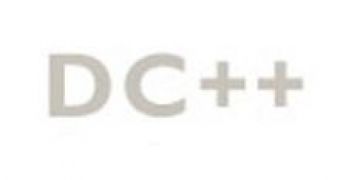Perhaps to you this will seem a rather pointless subject since that day doesn't seem to be too close (actually, it looks like it is far, far away). However, that special day could come a lot earlier than expected, and that's because the most important content producers (and I'm using the ?content? term generically, in order to depict absolutely anything that could be found on the metropolitan download hubs, either movies, games or various other programs) seem to have finally accepted the fact that the Internet represents the biggest (and perhaps, at some point, the only) distribution channel of the future.
I won't go into any details regarding the technologies, networks, or the history of the metropolitan download hubs. These are things that most Internet users (who, generally, also use the above mentioned networks) either already know, or are not particularly interested in. And why would they be, since all they have to do is open one of the programs that allow them to access the download hubs, type in their query and... wait. Also, I won't mention much about the other file-sharing programs (BitTorrent, eMule and the others from the same family) because, after all, they are nothing else but the natural evolution of the metropolitan network concept, namely the planetary-level file-swapping network.
Quite honestly, what inspired me in writing this article were some events that occurred during the past few months. The first one was that Apple's online music store, the famous iTunes, has reached the record figure of 1 billion songs sold. The second (actually, there are two separate events, but for the sake of the argument, I'll speak about them as only one event) was that, according to some (very reliable) rumors, Amazon.com is preparing its own iTunes look-alike (which might also sell video files, and even movies, for that matter, because the company is in talks with both major music labels and major studios), and Universal Pictures has just launched a service that allows users to buy movies directly on the Internet (for now, just in the U.K.), and the third one was all the fuss created around WindowsLive, the famous future service from Microsoft, which will bring along a true revolution in our manner of using the Internet (or so do Gates &Co. say).
But what do all these events have to do with DC++ (or ODC)? And how could they pose a threat to it? Well, taken separately, they don't seem to have too much of an influence, but each of them refers (more or less directly) to one type of content which can be found on the hubs belonging to the metropolitan networks.
Let's start with music. MP3's are, by far, the most popular files to be ?exchanged? on ODC. However, the iTunes concept became more and more successful during the past few years, especially after the laws against illegal file-sharing became harsher. And seeing that the competition in this field (for now dominated by Apple) will probably become much more serious in the future, it's quite possible that the prices imposed by the various services of this type will drop significantly, reaching some values that will be low enough in order to make even the ?scroogiest? of users to give up on this rather ?immoral? solution of downloading illegal files. Quite obviously, there will still probably be some people who will never pay for the music they listen, but, in time, their number will decrease.
Movies are another type of content enjoying quite a high level of popularity on the metropolitan download networks, and the losses suffered by the cinema industry at the hands of pirates are quite important. And it seems that this is exactly the reason why the movie studios have decided to fight back this phenomenon by implementing a very original solution, considering the usual mentality of American companies, namely duplication and improvement. Thus, more and more services allow for the purchase and download of movies directly from the Internet (quite obviously, for a fee), but in these cases we're actually talking more about some sort of renting service, because the protection systems inserted in such files make them unusable after a certain period of time. The first system that allows their purchase (but not copying) is the one from Universal that I've mentioned earlier, and although the initial price (of 20 pounds) might seem a little bit high, once the market will develop, it will probably get substantially lower. And if we also take into consideration the fact that the number of Internet users will increase significantly in the future, it's quite possible that this type of (legal) content distribution method will become more and more important.
I've saved the problem of software for last, because here things are a little bit more complicated. Thus, the major software developers have already begun to put in all sorts of security systems, in order to prevent the use of programs obtained via some not exactly legal ways. Nevertheless, crackers keep up with the development of new protections, and the solutions for avoiding the security elements appear almost at the same time with the programs themselves. The only (apparently) possible solution is the pack of web services, whose level of security is much higher. And as more and more software products are turned into web services (see MicrosoftLive and the whole bunch of services from Google), it's becoming more and more obvious the fact that this is the general direction the developers of software products have decided to take.
It's quite obvious that all the ideas written up until now could be seen as just a fantasy. And I'm well aware of the fact that you'll think that this could never happen, and that nobody would rather pay for something than get it for free. Quite true, but here's where we must change our own view on the Internet and computers. In our own level of civilization, because it's quite clear that, in the future, a person's (or group of persons') level of civilization will be evaluated based on their ?online? attitude. Thus, as a conclusion, the day in which the DC++ (or ODC, or whatever you might want to call it) will bow down to the legal download services will be the day us, users, will decide to make the right (and moral) choice.

 14 DAY TRIAL //
14 DAY TRIAL // 



